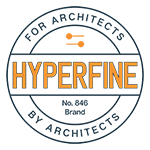Inside face of walls or outside face of walls?!?!?! Understanding and measuring gross floor area is one of the most common questions I get, so here’s the answer in blog form.
Short answer: It’s both.
Medium answer:
Code questions – Inside face of walls
Zoning/Building Planning questions – Outside face of walls
Long Answer:
The confusion comes from two similar terms being used for different reasons and in different phases of the same project. The issue is further complicated by various interpretations of the code in different jurisdictions and architects “getting away with” different calculations based on what’s most beneficial to a specific project at any one time.
The two times this term comes up is in building planning and in code analysis, when determining floor area and occupancy. Let’s start with code first.
GROSS FLOOR AREA
Floor Area, Gross. This is the official term from the 2018 IBC, and if you believe the question you are answering is a code question, this is the only definition you need to worry about. Per the 2018 International Building Code, Chapter 2, Floor Area, Gross is “the floor area within the inside perimeter of the exterior walls…” This means the IBC measures to the inside face of the walls and the definition is indisputable, so try to forget what you did on that one project that one time, or what Steve in your office says the code says. Always read it yourself!
Keep in mind that the code is concerned with life safety, so it makes sense that the code is written about the inside size of the building. Building areas can be used to calculate maximum building size, egress distances and size, and occupant load. The code cares about the number of people inside the walls, and how to safely get them out. Since people can not occupy shafts you can subtract them.
GROSS BUILDING AREA
The second time the term Gross Floor Area will come up is in building planning phase. Maybe related to zoning, maybe related to space planning or maybe related to initial cost estimates. And you might see variations of the term, like Gross Building Area or Gross Area. The GSA-Gensler PDF on Circulation: Defining and Planning is a great resource for this definition of the term. In most cases, the use here will count to the outside face of the walls.
Again, consider who is using the term and what’s being discussed. Zoning cares about the outside size of the building. Think about things like massing, lot coverage, green area ratios, etc. If you think the question is about zoning, you are most likely measuring to the outside of the exterior walls.
Same thing with building planning. Builders/developers are looking to understand how much building they are…building. How much it’s going to cost and how efficient the floor plan is. The building size based on the outside face of the walls is a good baseline, it’s easy to fix earlier in the project. If you think the question is about building planning, you’ll likely be using this definition of Gross Floor Area.
NET FLOOR AREA
We can have a similar discussion about Net Floor Area. Again, we have code scenarios and building planning scenarios.
The 2018 IBC defines Floor Area, Net as “the actual occupiable area…” Again, concerned with how many people can actually be present within a space. You do not count corridors, stairs, ramps, bathrooms, mechanical rooms or closets. (Note: I have seen all these spaces counted on occupancy calculations and have it be accepted by the plan reviewers. My guess is you have as well. On the ARE try to put that out of your head and just go off of what’s actually written in the code)
Building planning uses of Net Area ignores similar public spaces, like corridors and elevators, though the space taken up by interior partitions IS included. This use of Net Area will often measure to the partition centerline, so the space of the actual wall is included. That’s the one big difference from code we see in this kind of scenario.
THE MORE YOU KNOW
This has been a public service announcement from Hyperfine Architecture. Got a request for future blog or YouTube topics? Send me an email! And while you're here, check out my ARE 5.0 Study Material.




